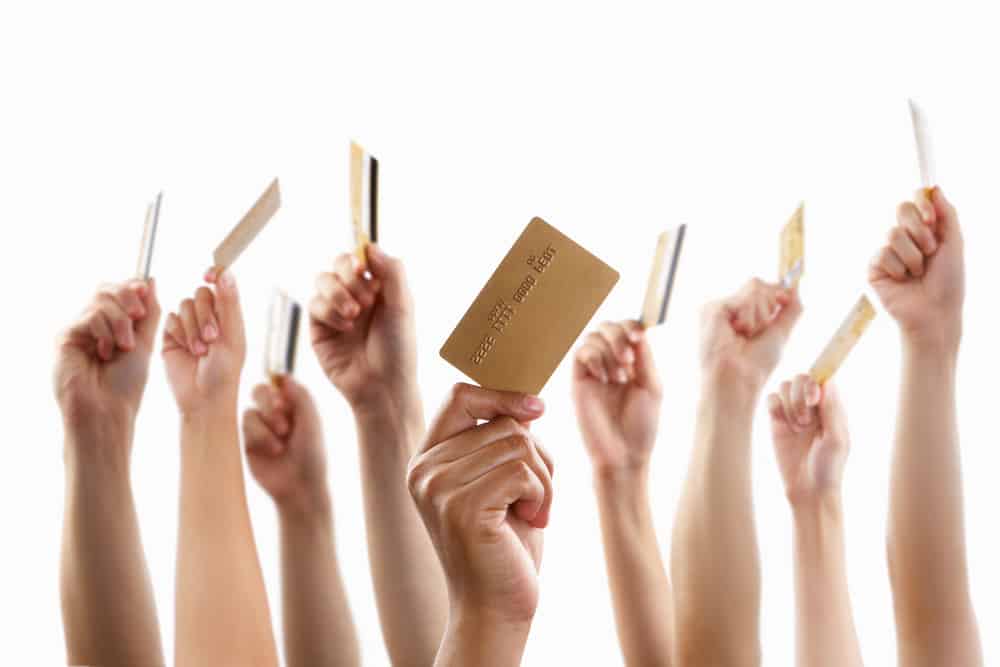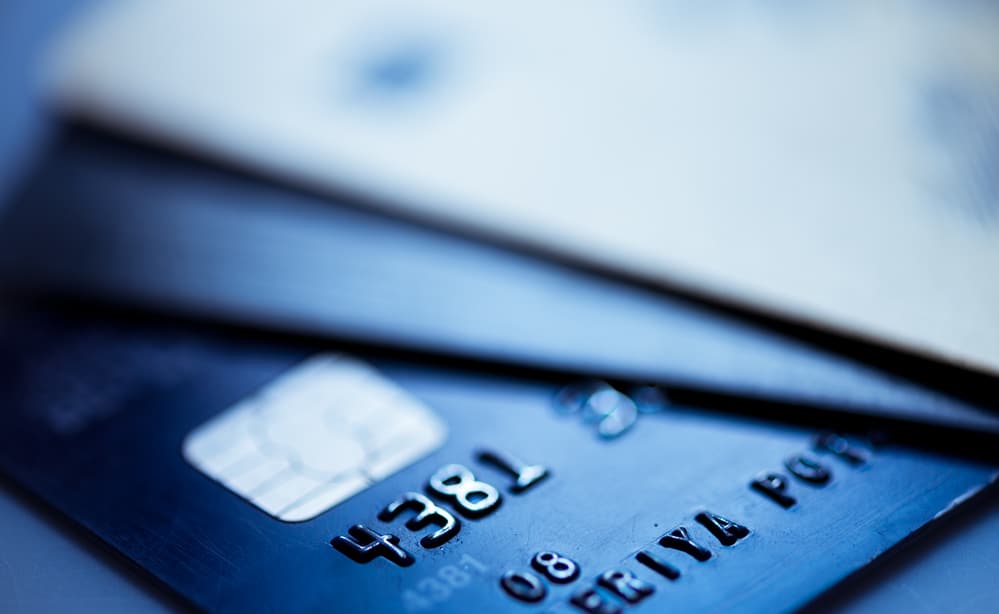Choosing a First Credit Card (What to Look For)
THIS POST MAY CONTAIN AFFILIATE LINKS. MEANING I RECEIVE COMMISSIONS FOR PURCHASES MADE THROUGH THOSE LINKS, AT NO COST TO YOU. PLEASE READ MY DISCLOSURE FOR MORE INFO.
When you are young and just starting out, it can be difficult to know how to handle your money. You may not have a lot of experience with credit, and you may not know which credit card is the best for you.
There are a lot of different options available, and it can be hard to figure out which one is the right choice. In this article, we will discuss some of the things you should consider when choosing your first credit card.
What Features to look at in a credit card
When choosing your first credit card, it is important to consider a few key factors. The most important thing to look for is a card that fits your needs. There are a lot of different cards available, so you should find one that matches the way you plan to use credit. Here are some things to keep in mind when choosing a credit card:
- The interest rate: Make sure you understand the interest rate before you apply for a card. This will help you determine how much you will end up paying if you don’t pay off your balance each month.
- The annual fee: Some cards have an annual fee, while others do not. You should consider whether or not the fee is worth it, based on the benefits of the card.
- The rewards program: Many cards offer rewards programs that give you points or cash back for every purchase. You should look for a card with a rewards program that fits your spending habits.
- The credit limit: Your credit limit is the maximum amount of money you can borrow from the card. While you don’t personally get to decide this limit, make sure it’s one you’re comfortable with.
Once you have considered these factors, you should be able to narrow down your choices and find the best credit card for you.
How to compare different cards
Once you have a few cards in mind, it is time to start comparing them. The best way to compare credit cards is to use a credit card comparison tool. This tool will allow you to see the different features of each card and how they stack up against each other.
Both Nerdwallet and Wallethub offer great comparison tools.
The benefits of having a credit card
There are a lot of benefits that come with having a credit card.
For one, it can help you build your credit history. If you use your card responsibly and make all of your payments on time, you will start to build a positive credit history. This can be helpful when you want to apply for a loan or another type of credit in the future.
Another benefit of having a credit card is that it can give you access to emergency funds. If you have an unexpected expense, you can use your credit card to cover the cost. This can be helpful if you don’t have a lot of cash on hand. But be careful about using a credit card in this way as it can lead to a lot of interest charged if you don’t pay it off at the time of your next statement.
Finally, having a credit card can give you peace of mind. If you lose your wallet or your card is stolen, you can cancel the card and get a new one. This can help you avoid a lot of hassle and stress.
How to responsibly use a credit card
If you want to enjoy all of the benefits that come with having a credit card, you need to use it responsibly. For first-time credit card users this means:
- making all of your payments on time
This will help you avoid late fees and keep your balance low.
- keeping your balance low.
Ideally, you will pay off the card in full each month, but if you can, aim to keep your balance, less than 30% of your total credit limit to avoid a negative impact on your credit score.
- only charge what you can afford to pay back
If you start to carry a balance, you will be charged interest. This can add up quickly and put a strain on your finances.
- you should always keep an eye on your credit limit
If you start to approach your limit, it may be time to cut back on your spending.
What to do if you experience financial difficulty
If you start to experience financial difficulty, there are a few things you can do.
First, you should contact your credit card issuer and let them know what is going on. They may be able to work with you to lower your payments or give you more time to pay off your balance.
Second, you should make a budget and stick to it. This will help you get your finances back on track.
Finally, you should consider contacting a nonprofit credit counseling service. They can help you develop a plan to get out of debt.
If you follow these tips, you should be able to get your finances back on track. However, if you find that you are still struggling, you may want to consider filing for bankruptcy. This should be a last resort option, but it may be the best way to get your finances back in order.
How to build your credit history and improve your credit score
There are a lot of factors to consider when choosing your first credit card. If you have no credit history, you’ll want to find a card that will help you build credit quickly and improve your credit score. You’ll also want to look for a card with low fees and interest rates.
If you have a limited or no credit history, you may want to consider a secured credit card. Secured cards require a deposit, which is usually equal to your credit limit. This deposit acts as collateral in case you default on your payments. Because of this security deposit, secured cards are easier to get than unsecured cards and are a great way to start building credit.
Related: How to Start Building Credit
If you have a good credit score, you’ll likely qualify for an unsecured card. Unsecured cards don’t require a deposit, and they often come with higher credit limits and lower interest rates than secured cards.
Once you’ve chosen the right type of card for your needs and what your credit will qualify you for, you can start comparing offers from different issuers. Look for a card with low fees, a 0% introductory APR period, and rewards that fit your spending habits.
When you’re ready to apply, be sure to fill out the application completely and accurately. Lying on a credit card application is illegal, and it can result in criminal charges.
Once you’ve been approved for the card, use it responsibly by making all of your payments on time and keeping your balance low. If you do this, you’ll be well on your way to a great credit score.

Bottom Line
There are a lot of credit card options to choose from depending on how much money you need to borrow and what kind of credit you have.
Once you’ve selected a card, you’ll want to read through the terms and conditions carefully before signing up. Make sure you understand everything about the card’s features, including its annual fee, interest rate, and other fees.
Remember that you should never carry a balance on your credit card if you can avoid it. Paying down your balance every month will help you avoid late payment fees and high-interest rates.
Remember that there are many ways to manage your finances and build your credit history. The key is to pick the method that works best for you and stick with it.
Frequently Asked Questions
Do you still have questions about choosing a first credit card? We’ve answered the most common questions below.
How can I build credit if I don’t have any credit history?
If you don’t have any credit history, you can start building credit by getting a secured credit card or becoming an authorized user of another person’s credit card.
What is the best way to use a credit card?
The best way to use a credit card is to pay your balance in full every month. This will help you avoid interest charges and keep your credit score high. If you can’t pay your balance in full, try to keep your balance below 30% of your credit limit.
How does a credit card affect my credit?
Your credit score is affected by your payment history, credit utilization, credit history length, and mix of credit accounts. A credit card can help you build positive payment history and improve your credit score.
What is a good credit score?
A good credit score is typically around 700 or higher. However, the definition of a “good” credit score varies depending on the scoring model used.
What is a bad credit score?
A bad credit score is typically below 600. However, the definition of a “bad” credit score varies depending on the scoring model used.
Building credit can seem like a daunting task, but it’s actually pretty simple. Get a credit card and use it responsibly. If you do this, you’ll be on your way to a great credit score in no time.
What should I consider before choosing a credit card?
There are a few things you should consider before choosing a credit card, such as your credit history, credit score, and spending habits.
If you have no credit history or a low credit score, you might have trouble qualifying for a regular credit card, in which case you should consider a secured credit card.
These cards require a security deposit that acts as collateral and is usually equal to your credit limit. Because of this security deposit, secured cards are easier to get than unsecured cards.
How many credit cards should a person have
There is no magic number of credit cards a person should have. However, having a few different types of credit accounts (such as a mortgage, car loan, and credit card) can be helpful in building a strong credit history.
How long does it take to build credit
It takes time to build credit. The length of time depends on several factors, such as your payment history and credit utilization. Generally speaking, it takes a few months to a year of responsible credit use to start seeing a noticeable impact on your credit score.
Related: How to Build Credit with the Chime Credit Builder Card
How often should I use my credit card
There’s no hard-and-fast rule for how often you should use your credit card. However, using your credit card regularly can help you build a positive payment history, which is one of the most important factors in your credit score. If you’re trying to improve your credit score, you may want to use your credit card for small purchases and pay it off in full each month.
What are the 4 types of credit cards
There are five main types of credit cards: secured, unsecured, business, and rewards.
Secured credit cards require a deposit, which is usually equal to your credit limit. These cards are easier to get than unsecured cards if you have bad credit or no credit history.
Unsecured credit cards don’t require a deposit. These are the most common type of credit card.
Business credit cards are specifically for businesses. They often come with perks, such as cash back or points, that can be used to offset business expenses.
Rewards credit cards offer rewards, such as cashback or points, that can be redeemed for travel, merchandise, or gift cards. These cards usually have an annual fee.
Balance Transfer Cards allow you to move all or part of your existing debt onto another card. This means you won’t accrue interest while paying down your old debts. It also gives you more flexibility when making payments because you only need to make minimum monthly payments on the new card.
No matter what type of credit card you choose, be sure to use it responsibly. Otherwise, you could end up with credit card debt that has a high-interest rate and a low credit score.

What age can you start checking your credit score?
You can start checking your credit score so long as you are over 13 years of age. However, it’s important to keep in mind that your credit score is a snapshot of your credit history. If you don’t have much credit history, your score may not be very accurate.
What is the difference between a soft inquiry and a hard inquiry
A soft inquiry is a request for your credit report that does not impact your credit score. A hard inquiry is a request for your credit report that does impact your credit score. Hard inquiries are usually made by lenders when you apply for a loan or credit card. Soft inquiries are made by businesses for marketing purposes to determine rates they can offer and by individuals who are checking their own credit.
Does a credit card help build credit
Yes, a credit card can help build credit. By using a credit card and making timely payments, you can improve your credit score. A good credit score can help you qualify for loans and get lower interest rates.
Can you get a credit card with no job
It is possible to get a credit card with no job, but it may be difficult. Lenders typically want to see proof of income when you apply for a credit card. If you don’t have a job, you may need to provide other documentation, such as bank statements or investment account statements, to show that you have the ability to repay your debts.
What is the best credit card for a first-time credit card holder
There is no one “best” credit card for first-time holders. The best credit card for you will depend on your individual needs and financial situation.
For example, if you have bad credit, you may want to consider a secured credit card. If you’re a student, you may want to look for a credit card with no annual fee and a low-interest rate or those that are specifically student cards. Ultimately, the best credit card is the one that fits your needs the best.
What is a good APR for a credit card
The average APR for a credit card is around 18%. However, your interest rate will depend on your credit score and the type of card you choose. If you have good credit, you may be able to qualify for a card with a lower interest rate.
Applying for a credit card
Once you have chosen the right credit card, you will need to fill out an application. The process is simple and only takes a few minutes. You will need to provide some basic information, such as your name, address, and Social Security number. You will also need to provide information about your income and employment.
Once you have submitted your application, you will usually hear back within a few days. If you are approved, you will receive your credit card in the mail. If you are not approved, the credit card company will send you a letter explaining why.
Canceling your credit card
If you decide that you no longer want or need a credit card, you can cancel it at any time. To cancel your card, simply contact the credit card issuer and request that your account be closed. You will need to pay off any outstanding balances before your account can be closed. Once your account is closed, you will no longer be able to use the credit card.
If you cancel a credit card, it will have a negative impact on your credit score. Therefore, you should only cancel a credit card if you are sure that you don’t need it.

